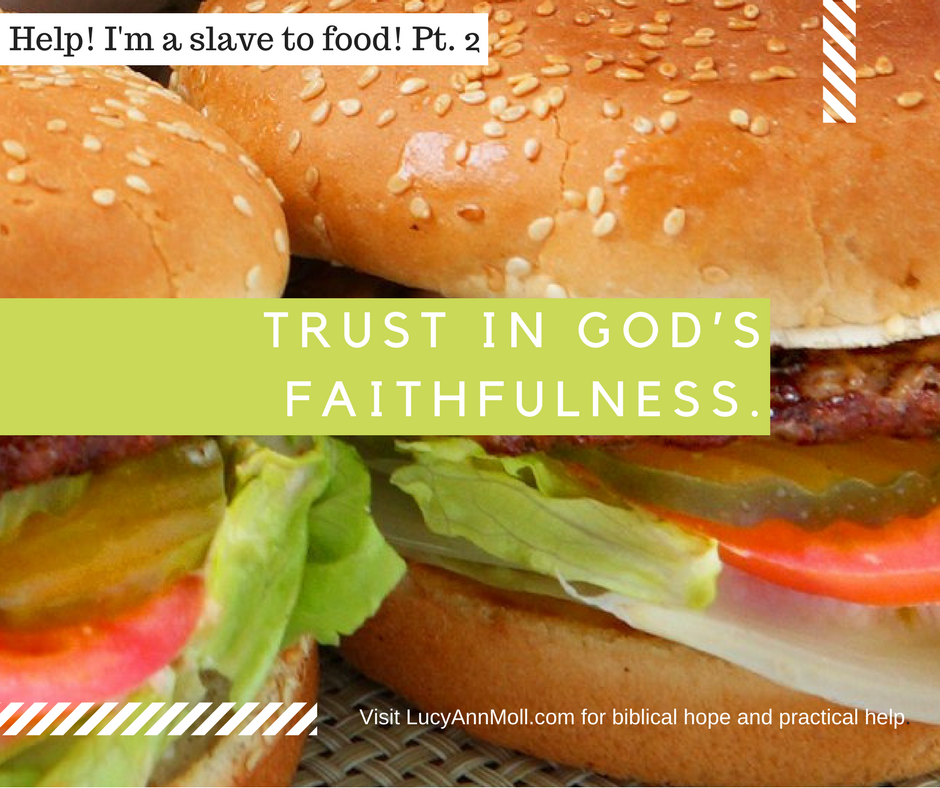
by Lucy | Oct 5, 2017 | biblical counseling, biblical counseling, emotions |
Who doesn’t have ugly thoughts, at least once in a while? Good news: You can replace ugly thoughts with truthful thoughts and renew your mind. Here’s a tool for you.
So today you learn how to:
1. Identify an ugly thought you believe that’s true about you or your circumstance.
2. Recognize the link between your thoughts and your feelings and replace your ugly thought with a new thought.
3. See change in your emotions and actions as you renew your thoughts. A helpful tool is my Transform Your Thoughts e-Journal. Available now.
What’s better, this process has helped hundreds of my counselees renew their thinking. It is based on scripture verses like Romans 12:2 and Ephesians 4:22-24:
You were taught, with regard to your former way of life, to put off your old self, which is being corrupted by its deceitful desires; to be made new in the attitude of your minds; and to put on the new self, created to be like God in true righteousness and holiness.
Step 1: Identify
First, on notebook paper, set up your categories like this:
UGLY THOUGHT. . .EMOTIONS. . .ACTIONS
Then under “Ugly Thought” write your current or recurring negative, ungodly thought. Then jot down the resulting emotions under “Emotions.” Now, list your behaviors under “Actions.” Here’s an example.
UGLY THOUGHT: “I’m stupid”
EMOTION(s): Anger, depression, loneliness
ACTION(s): Yell at the kids, slam the door, eat a bag of chips
Step 2: Replace
Now write three new categories. Under “Truthful Thought” replace the ugly thought with a biblical truth or a scripture verse. Then write the likely resulting feelings under “New Emotion” and likely behaviors under “New Action.” On your notebook paper set up your categories like this:
TRUTHFUL THOUGHT. . .NEW EMOTIONS. . .NEW ACTIONS
Here’s a corresponding example.
TRUTHFUL THOUGHT: God says all his works are wonderful, so this means I’m an okay person and He’ll help me.
NEW EMOTION(s): Contentment, courage
NEW ACTION(s): Hug the kids, smile, complete the job application
Step 3: See Change
Lastly, chart the ugly thoughts you believe, your emotions, and your actions daily. As soon as you recognize an ugly thought, replace it with a truthful thought.
Click & Tweet!
And ask God in prayer to help you believe his truth. As you stick with it, you’ll begin to see a change in your emotions and actions as you replace ugly thoughts with the truth. Please be patient and persevere.
You didn’t develop poor thinking patterns overnight. In fact, they may have begun in childhood and are ingrained in your thinking. And so it’ll take weeks, sometimes months, as you to cooperate with the Holy Spirit in the renewing of your mind. Have hope. You CAN do it with God’s help.
Question: What is truthful thought you’d like to have in place of an ugly thought?
by Lucy | Sep 19, 2017 | biblical counseling, emotions, relationships
 REAL LOVE: I stepped into “Little House on the Prairie” reruns when I visited friends’ homes during childhood. A home very different from mine.
REAL LOVE: I stepped into “Little House on the Prairie” reruns when I visited friends’ homes during childhood. A home very different from mine.
People in these homes blessed each other with words of affirmation:
“Beautiful picture, honey. I can barely wait to show grandma.”
“You remembered to put away your books. You are so responsible!”
“I appreciate that you called home to say you’d be late. That meant a lot to me, that you cared.”
Raspberry kisses, tummy tickles, and high fives interspersed these blessing words. I watched these dreamy interactions unfold and harbored more than a little jealousy. Have you too wanted something you didn’t have?
Where’s Real Love?
But at my home, dad yelled and mom withdrew into stony silence. Often I covered my ears to muffle the hate words. I also tried make my parents happy. From age 8 or 9, I washed floors and tubs, dusted and vacuumed, finished my homework without reminding, and played with my older brother, Ted.
But my presence made little difference. And Ted just seemed to irritate them. A bonafide IQ of 148 and report cards with Cs and Ds–he had trouble finding a place of belonging at home or school. It seemed, we were side tables in a white clapboard, one-and-a-half-story house in a Chicago suburb. Just furniture. We believed we had no voice.
When Ted turned 16 or so, the drug scene lured him. I tried to fit in with the “popular” girls and failed. Again. Do you relate?
God Steps In
Perhaps the influence of an unhappy childhood is one reason I became a counselor. My work as a biblical counselor permits me the privilege of helping children and teens know God’s care, love, and purpose in their lives. It’s encouraging that very often a child’s pain evaporates like a puddle on a hot summer day as the child (or teen) and the parents choose to love God above all. (Matthew 22:37)
As God transforms hurting hearts, thoughts, actions, and emotions as well as beliefs come together and reflect the heart of Jesus. Did you know Jesus welcomes little children? Our wonderfully radical Lord invited them to come near.
Now they were bringing even infants to him that he might touch them. And when the disciples saw it, they rebuked them. But Jesus called them to him, saying, ‘Let the children come to me, and do not hinder them, for to such belongs the kingdom of God. Truly, I say to you, whoever does not receive the kingdom of God like a child shall not enter it.’ Luke 18:15-17, ESV
The truth: Children do matter. Toddlers or teens, they deserve our love. Real love. Christ-like love.
Click & Tweet!
Real Love in Good Times, Bad Times
What does real love look like during good times at home?
Conversation at dinner time, playing board games, and going for walks.
What does real love look like in bad times?
Repentance, forgiveness, consequences.
Reality is a phenomenal teacher. When a child does his homework, he gets the satisfaction of good grades. When a preschooler bites a 3 year old at the playground — yes, I am a mom of a former biter — she is escorted from park immediately. When a teen refuses to clean her room, her cell phone goes in timeout.
Real Love: Messy!
Healing came as I recognized I cannot change my family of origin. But my husband and I can rewrite the script for our children. With God’s help, we can leave a legacy of real love. We mess up, of course. Real love isn’t perfection. Rather, it’s hugs and tears and laughter in the middle of mess.
JUST FOR YOU: Would you like help with struggles that perhaps go back to childhood hurts? I offer a short, complimentary phone consult. Sign up here.

by Lucy | Sep 7, 2017 | biblical counseling, emotions, whole health wellness
Overeating is a life-dominating sin. It has a strong influence over your life, affecting your mind, your body, your spirit, your heart, your emotions, your relationships, and even your finances. The sin of overeating is practiced repeatedly so that it becomes a habitual lifestyle and almost second nature, a continuous action that controls your life.
Let’s look at nine characteristics of the life-dominating sin of overeating.
Characteristics of Life-Dominating Sin
1. You have repeatedly tried to stop overeating.
You’ve tried every diet known to man, but failed to stop habitually overeating. The root of your problem is that you are not taking this sin seriously.
2. You blame others or circumstances for your failure.
The world may teach you to blame your mother for your sinful eating habits because, when you were a child, she forced you to ‘clean your plate’ at every meal. You may blame overeating on your genetic makeup. Also you may blame your diet plan: “It did not work for me. It is too strict.”
Perhaps you even blame your sin on God because he will not change your circumstances, your cravings, and so on. You completely disregard what the apostle Paul says in Romans 14:12:
So then each one of us will give an account of himself to God.
3. You deny that overeating is a sin.
You believe what the world tells you about your overeating problem: that your problem is really low self-esteem, or that you actually have a disease. In addition, you refuse to accept that your actions are sinful and do not glorify God. And so you call it a weakness instead of a sin.
4. You convince yourself that you are not enslaved to overeating and ‘can stop at any time.’
You must admit that you are in bondage to the sin of overeating. Jesus teaches, everyone who commits sin is the slave of sin (John 8:34). Chance are, you believe that you are in control of your eating habits every time you start a new diet plan or workout program.
But you are deceived into believing that this plan will deliver you. A life-dominating sin requires the work of the Holy Spirit in order for it to be put to death in the believer.
5. Any pleasure from overeating is short-lived, while the harm is considerable and long-Term.
You feel as though you have no control over your cravings. And so you give in to the temptation to eat repeatedly. Then you see your body weight increasing and feel your clothes tightening.
As a result, you get depressed because you don’t like the way you look. Your blood pressure is getting dangerously high, and your knees hurt when you try to climb the stairs to your apartment. Nevertheless, you find yourself stuffing your face again with massive amounts of food and not receiving the relief you are seeking.
6. You overeat when no one is watching.
When overeating controls you, you will seek to hide your outward behavior by doing it in secret….Hiding your sin will only lead you into deeper bondage. You must realize that there is power in confession.
James 5:16 states,
Therefore, confess your sins to one another, and pray for one another so that you may be healed. The effective prayer of a righteous man can accomplish much.
7. You know that overeating obscures the testimony of Jesus Christ in your life and Is a stumbling block to others.
To commit sin and know that it is damaging the testimony of Jesus Christ can lead you more deeply into slavery. You must know that your sinful actions are affecting everyone around you: your husband, children, coworkers, unsaved relatives, and friends.
You cannot admonish and encourage others in their walk with Christ when you are purposefully committing sin in their presence. They see your helpless struggle with overeating and may deny the power of Christ in their own lives.
8. You Know that God’s Word Tells You to Stop Sinning, and that God Can Release You from this Bondage.
Pride and rebellion are at the heart of your problem. Perhaps you have been a Christian for a long time and you know that God is not pleased with your gluttonous behavior. But you continue to ignore God’s command to glorify him when you eat (1 Corinthians 10:31). You refuse to trust in God’s faithfulness and accept his way of escape (1 Corinthians 10:13).
9. You realize that your deeds (thoughts, words, actions) do not conform to the character of Christ.
Your conscience accuses you of your sin. Plus, your behavior doesn’t conform to the character of Christ. Without telling a bold-faced lie, you cannot say that your gluttonous behavior is Christlike. You know in your heart that your behavior is not pleasing to the Lord. You know that your desire is to please yourself.”
Get HELP! I’m a Slave to Food in print copy and/or Kindle format.
RESOURCE: Looking for a whole-hearted, comprehensive ebook to be Fit for Life. Get it now.
Sharing Hope with Your Heart,


by Lucy | Aug 17, 2017 | biblical counseling
When you embrace the truth of who God is, your burdens lift. . .even in trials. Dr. Donna Hart, PhD, listed in Heart2Heart Counselor Directory here, shares loving truth. Her article appeared first here on her website and is used with permission.

When our burdens seem too heavy a weight to carry, we can be tempted to believe that God has unjustly piled them on us. The heaviness of the burden may lure us toward unbiblical views leading us to distrust his goodness. Then we may feel depressed.
False belief: I should get what I want
One belief we are prone to have is our right to certain things or relationships. We can mistakenly believe we have a “right” to what we want. We fail to realize the truth that it is a blessing to have. It is not a right.
Then anger often emerges, prompting us to doubt God’s goodness and faithfulness. This path of thought will lead us to presume we know better than God. And we will likely try to do things our way.
Do you ever think God is arbitrarily making you miserable? If so, you may base your thinking on persistent feelings of discomfort, rather than upon God’s words of promise. So it’s is no wonder you’re miserable!
Asaph Questions God’s Character
Asaph questions God’s character in a similar way in Psalm 77:7-9:
Will the Lord reject forever? Will he never show His favor again? Has his unfailing love vanished forever? Has his promise failed for all time? Has God forgotten to be merciful? Has he in anger withheld His compassion?
Fortunately, Asaph asks his questions from a place of faith in God. Our questions may be like Asaph’s, but they may not be asked from a position of faith.
An unbiblical interpretation of our lives can lead us down a slippery slope of false beliefs, which cause us to become more deeply saddened, thinking the future holds no hope.
False Belief: This world is all there is
Our hearts can start to think this world is all there is and seek only temporal relief rather than longing for his glory. Second Corinthians 4:17-18 says,
For our light and momentary troubles are achieving for us an eternal glory that far outweighs them all. So we fix our eyes not on what is seen, but on what is unseen, since what is seen is temporary, but what is unseen is eternal.
When we continually reject the truth of the Word by believing our own thoughts and emotions about our circumstances, we start to feel guilty. We also assume he has rejected us, leaving us with little hope.
Our hearts often cry out as Asaph did, asking if his will ever return. But we must remember that it is not true that he has forgotten to be gracious or that he has withdrawn his love, leaving us victims.
We must rebuke the lies that cause us to think God is standing with a raised hammer just waiting for the opportunity to lower it on our heads.
Asaph foresaw the inevitable judgment on Israel. In his heart he cries to God as he anticipates the coming misery of the Israelites’ suffering in captivity. He voices his fears but continues to appeal to to God’s divine power to change all that is to come.
False Belief: Trials are bad
The truth is, God ordains our trials to teach us to trust him and to grow our faith. In those trials, we must exercise a strenuous faith and give God glory and honor regardless of the circumstances. Be determined to resist self-focused desires of insisting on comfortable lives with easy answers, and convenient timetables.
As we learn to give God the glory and honor him no matter the circumstances, he will help us to. . .
- make discerning decisions with the right perspective
- grow in our faith
- persevere with joy
Let us learn to not gaze long and hard at our own suffering. Rather, may we stay focused on the promises God has set before us.
Sharing Hope with Your Heart,

by Lucy | Aug 8, 2017 | biblical counseling, emotions, thoughts
 Words: Do you choose words that heal or harm?
Words: Do you choose words that heal or harm?
In this short article, you’ll discover. . .
- Your words flow from your heart.
- How to Identify the verbal villians of pride, anger, and fear.
- Begin healing your heart.
Communication is the expession of how we feel and what we think. Did you know only 7 percent of your communication are your words? The remainder is split between your tone of voice and your body language. This means all three are crucial.
Right now let the words “Come here, Johnny” play in your mind. When you say them angrily, with a clipped voice and face scrunched up, you send one message. When you says them softly and sweetly, you send another message all together, don’t you?
Our words, along with our tone of voice and body language, have the power to encourage, heal, and teach. They also confuse, embarrass, and hurt.
Jesus says,
“Out of the overflow of the heart the mouth speaks,” and, “on the day of judgment people will give an account for every careless word they speak” (Matthew 12:34,36).
Jesus underlines the truth that we know the essence of who we are by examining the very words we speak.
The Proud Heart
Pride elevates self. The person with a proud heart think she’s better than others. But God says all persons have value.
The words of someone with a prideful heart sound like:
- Boasting
- Flattery
- Lying
- Mockery
- Cursing
- Quarreling
Accept one another, then, just as Christ accepted you, in order to bring praise to God. (Romans 15:7)
Here’s a godly solution to pride.
The Angry Heart
Anger is agitation resulting from an unmet expection. Does you husband expect a delicious meal at 6 pronto? If it’s 30 minutes late, you may hear his grumbling words and read disgust or hurt on his face. When a coworker messes up an important project, do you blow up or clam up?
Anger itself is not sinful. However, someone with an angry heart may become bitter.
See to it that no one fails to obtain the grace of God; that no ‘root of bitterness’ springs us and causes trouble, and be it many are defiled. (Hebrews 12:15)
The words of someone with an angry heart sound like:
- Lying
- Slander
- Cursing
- Exaggeration
- Rebellious
- Abusive
Here’s a godly solution to anger.
The Anxious Heart
Anxiety often arises when you face loss – loss of safety, security, reputation, family, friends, even happiness. You feel unease, perhaps dread. Rather than fearing God and depending on his sovereignty and goodness, you might succumb to sinful fear and your words may sound like:
- Insecurity
- Impatience
- Anger
- Jealousy
- Lying
- Flattery
God has not given us a spirit of fear, bu tof power and of love and of a sound mind. (2 Timothy 1:7)
Here’s a godly solution to anxiety.
Healed Heart, Healed Words
In Genesis 1 God spoke the world and all that is in it into existence. We are his image bearers. Therefore, as his image bearers, he calls us to do what he does: speak life. Yet expelling verbal villains arising from pride, anger, fear and other difficult emotions is seldom easy. You may need help.
The good news is God can and will replace pride with humility, anger with patience, and fear with love. Begin with this question: “Is God pleased with what rules my heart?” Is it self or Christ? Next, choose to submit to Christ in every action, thought, emotion, and word. This isn’t easy, is it? It requires an attitude change and new godly habits.
Do you need help and hope? Make an appointment or sign up for a short, complimentary consultation. In person and Skype counseling available. Contact me today.
Sharing Hope with Your Heart,



 REAL LOVE: I stepped into “Little House on the Prairie” reruns when I visited friends’ homes during childhood. A home very different from mine.
REAL LOVE: I stepped into “Little House on the Prairie” reruns when I visited friends’ homes during childhood. A home very different from mine.
 Did you know overeating can dominate your life? This is part 2 of a two-part series. See Part 1
Did you know overeating can dominate your life? This is part 2 of a two-part series. See Part 1 

 Words: Do you choose words that heal or harm?
Words: Do you choose words that heal or harm?
